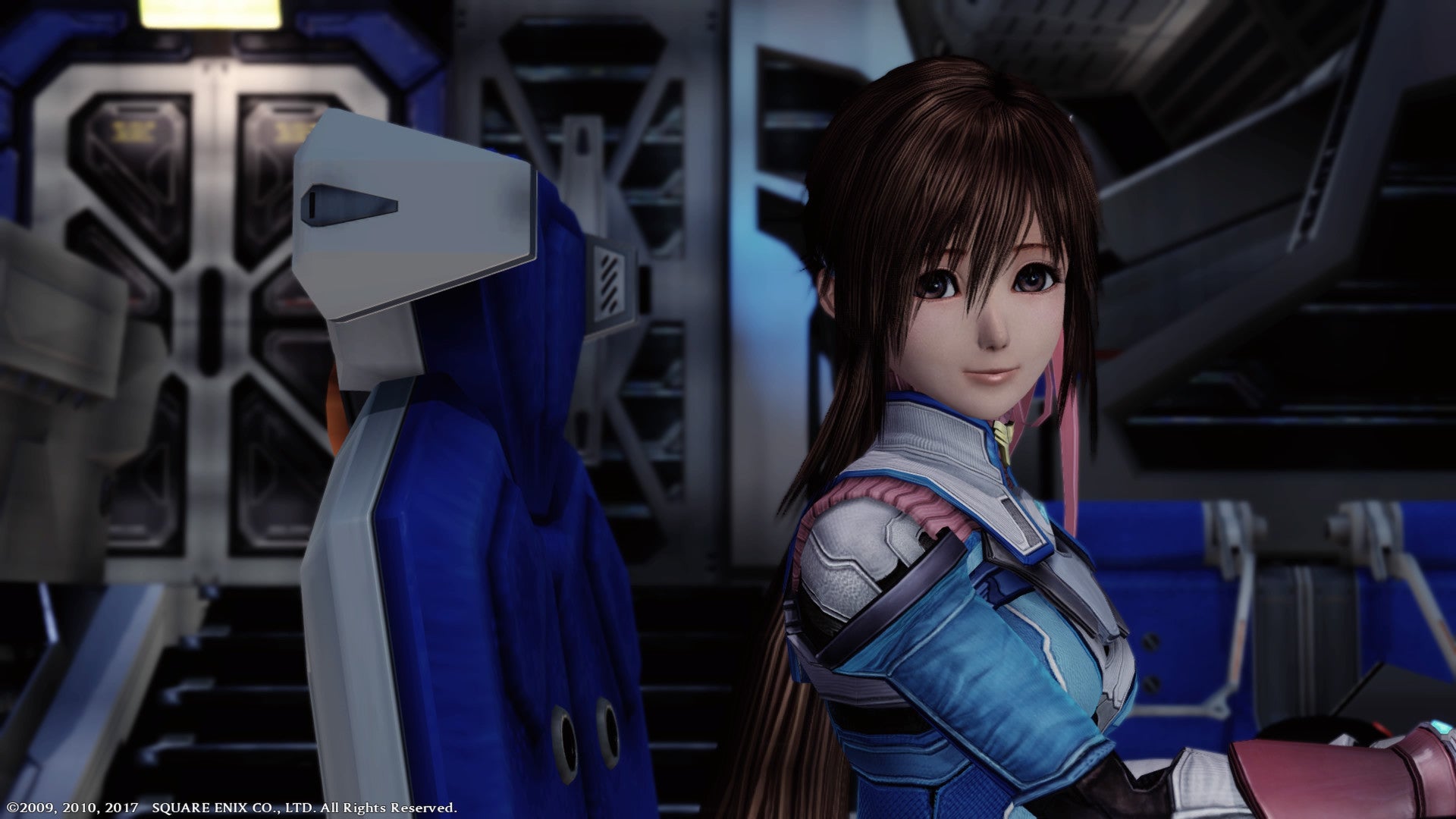That’s why I’ll always be a stan for games like the criminally underrated, gloriously stupid 50 Cent: Blood on the Sand. It’s why I love the voice acting of The House of the Dead, the campy vibe of pre-EA Command & Conquer real-time cutscenes. It’s why I play Earth Defense Force, endless Musou games, and stuff like Deadly Premonition. And it’s why I love Star Ocean. Star Ocean, which turns 26 years old this week, wasn’t exactly envisioned as a B-tier series when it broke onto the scene with its Japan-only Super Nintendo debut. It was just another RPG released onto the SNES in what was a golden-age for the Japanese made variant of the genre, developed as the flagship game of then-new development house tri-Ace and published by Enix, the folks behind Dragon Quest. But over the years, that’s what it became. Star Ocean’s fate as a second-stringer was really sealed by the success of the games around it. Already sitting in the shadow of Dragon Quest at Enix, by the time Star Ocean’s second entry was released, Final Fantasy 7 had already rocked the industry by becoming the most successful console RPG of all time. After a couple more games, Square and Enix merged, meaning Star Ocean was now sitting in the same stable as Final Fantasy, too. Its slide down its publisher’s ranking of franchise importance was only natural. And yet, the series persevered. Perhaps this has something to do with the unique development setup, where tri-Ace – an independent company – develops the games, but Square Enix publishes. Star Ocean is B-tier to Square Enix, but for tri-Ace it is everything; the studio’s flagship series, its most iconic property. Because of that, you can feel the effort and ambition in each and every Star Ocean title – even if the budget allocated by the title’s publisher is much more modest than that ambition might suggest. This has, in a way, become what I love most about Star Ocean. In the HD era especially, starting with the side-splittingly accidentally funny Star Ocean: The Last Hope, you can constantly feel these games burgeoning with ambition that is simply not compatible with the scale of the game’s development. The result is a janky, slightly broken game with lots of juxtaposition: huge scale, but environmental constraints; a sprawling plot, but voice acting and cutscene direction that causes head-scratching; and often, a story that gleefully drifts into the absurd, more interested in if something is cool than if it might focus test well or even really makes sense. In many ways, to me Star Ocean has come to represent the other side of the Square Enix coin to Final Fantasy; a series that frequently delivers games that somehow end up having all the resources in the world while also managing to feel more narrow-minded, more audience-conscious, and quite often, more rushed. This isn’t to say that Star Ocean is better – it really usually isn’t – but the series just has a feeling of ambition and scale delivered through scrappiness that I really appreciate. As a result, I’m really glad that Square Enix and tri-Ace are continuing to make these games. Given they never quite seem to set the world on fire, it’d be easy for the publisher to decide to stop - but it doesn’t. In a way, Star Ocean has now found its own niche. 26 years in, it’s no longer chasing the successes of or riding the coattails of FF or DQ; it’s carved out its own identity as the fun, sometimes incoherent, lesser-budgeted sibling of those franchises. In short, it’s got that B-movie energy I love. In a few months time, the wild ride continues with Star Ocean: The Divine Force, the sixth main-line installment in the series. The trailers already suggest that it’s about to have that patented Star Ocean energy I love – though it’ll have a steep hill to climb to best The Last Hope, my favourite if only because the lead character is called Edge Maverick and keeps accidentally being tangentially involved in planetary destruction and genocide. God, these games are dumb. God, these games are good. Here’s to 26 more years.


.png/BROK/resize/690%3E/format/jpg/quality/70/star_ocean_the_divine_force-(8).png)